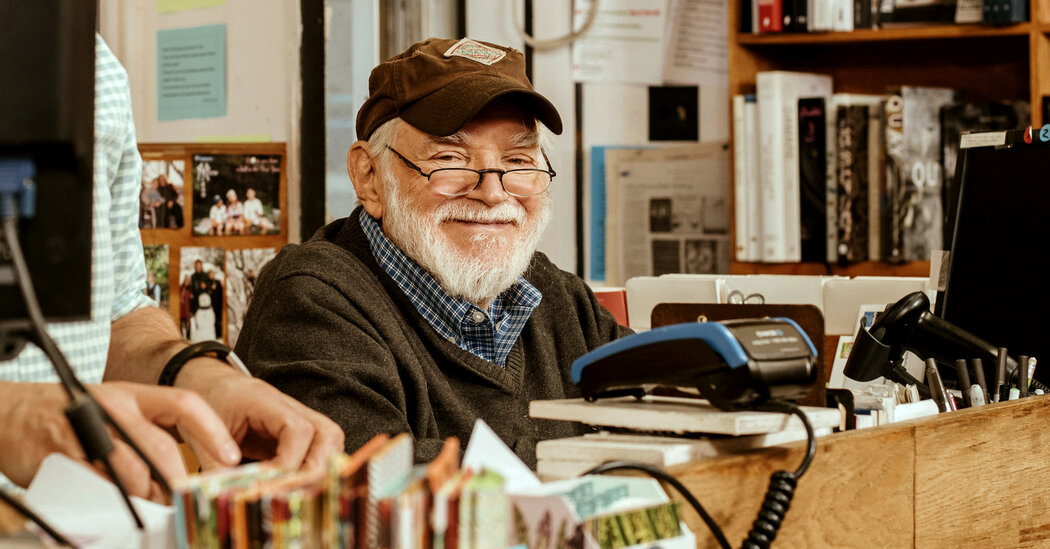
A second career as a bookshop owner suggested itself from the confluence of his expertise as an editor — he had edited a number of cookbooks — and his training as an anthropologist, one who viewed “food as a bearer of identity,” his wife, Maron Waxman, a former publishing colleague, said in a phone interview.
“We had been sitting down to meals that had been served by our family for generations,” she said. “That meant a great deal to us.”
He loved to cook, and the couple shared rich Jewish traditions associated with food. Mr. Waxman inherited his mother’s crockpots, in which every year at Purim he fermented beet brine to make Eastern European borscht from a venerable recipe.
His own recipe for brisket (cut from the breast or lower chest of beef) was featured in “The New Basics” (1989), by Sheila Lukins and Julee Rosso, authors of the popular “The Silver Palate Cookbook.” “I probably get as many calls and correspondence about that recipe as about anything I’ve ever done,” Mr. Waxman once said.
He credited the previous generation with the inspiration for that recipe. “A footnote is due to both my mother (for the massive use of onions) and to my mother-in-law (for the pre-slicing),” he told The Times in 2008. He maintained his spiritual ties to his heritage by joining a Sunday reading group that analyzes Hebrew texts at the Ansche Chesed synagogue, near his apartment on the Upper West Side.
He married Maron Loeb, a publishing consultant, in 1967. In addition to her and their son, Joshua, he is survived by a daughter, Sarah Waxman, and three grandchildren. He died at Mount Sinai Hospital.
Surrounded by the printed word, Mr. Waxman witnessed the growth of the internet. And though digital food editors today might disagree, he maintained in 2008 that the web was no substitute for cookbooks.


